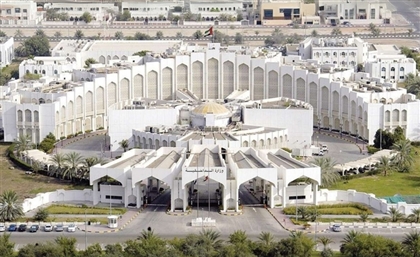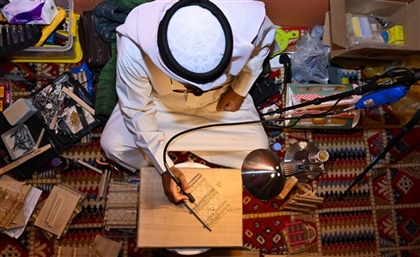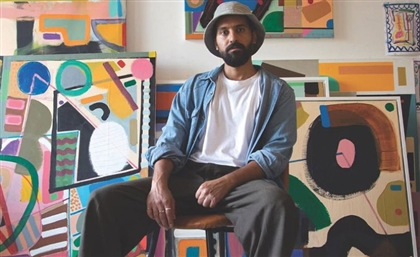Emirati Play Takes Aim at Bureaucracy With Absurdist Satire
‘Hamour Doesn’t Leave the Cubicle’, written by Ahmed Almadloum and directed by Reem Almenhali, was performed at NYU Abu Dhabi.
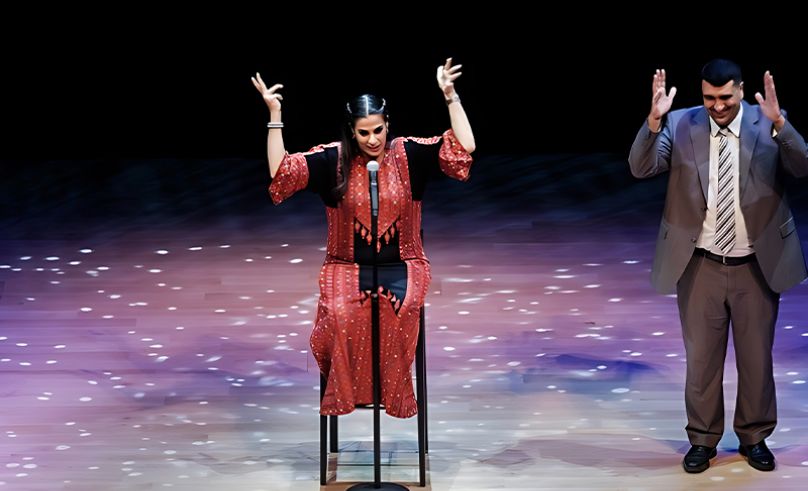
Performed last October at the theatre of NYU Abu Dhabi’s Art Center, the absurdist satirical play ‘Hamour Doesn’t Leave the Cubicle’ is the latest work by Emirati playwright Ahmed Almadloum. Through a series of surreal vignettes, including a funeral held for a pen, the play, directed by Reem Almenhali, dissects and cuttingly satirises the bureaucratic work culture of the UAE through the rivalry between Hamour and Shabasha, two managers at a faceless office.

"Everyone in the UAE complains about their managers, the endless procedures, and the cycle of pointless meetings," Ahmed tells SceneNowUAE. "We wanted to create a piece that used satire to bring these frustrations to life in a way the local audience could instantly relate to."
Though the frustrations of bureaucracy are universal, the play's design - including its costumes, set and soundscape - draws heavily on Emirati culture. “In the funeral scene for the pen, we recreated the soundscape of a traditional Emirati funeral with the clicking of coffee cups and the offering of traditional condolences. We even remixed a famous 90s song, ‘Farsha al Tarabujj’, for the funeral procession,” Reem explains.
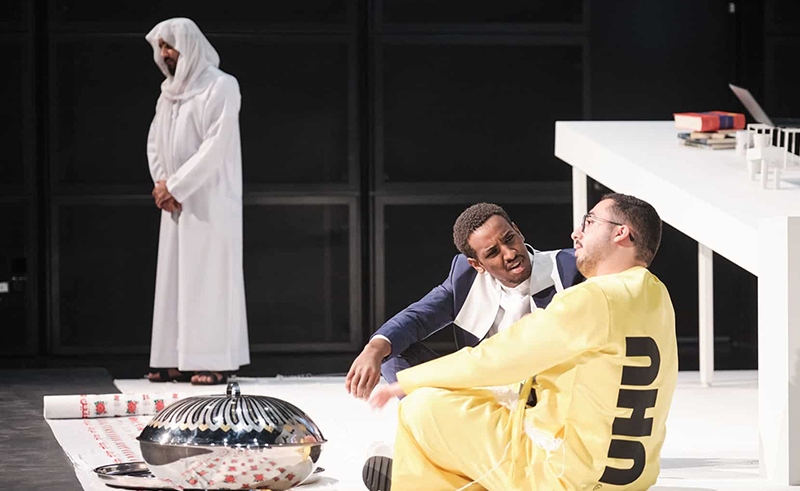
The characters' names further reflect the Emirati context. The protagonist, Hamour, is a pompous, old-school manager whose name, meaning "kingfish," is used in the UAE dialect to describe a powerful, wealthy figure. His underling is named Jashur, after a type of dried, crushed sardine, while the rival manager, Shabasha, is named after a clipper fish, symbolising her Gen Z obsession with arranging meetings.
Despite being rooted in Emirati culture, the frustrations of bureaucracy are universal, giving the work cross-cultural appeal. "People from around the world connected with it, and we were amazed at how relatable it was beyond our own cultural context," Ahmed says.

From Nikolai Gogol to Tawfiq al Hakim, modern writers have been quick to explore the ills of bureaucracy in their works. However, despite being deeply immersed in this rich modernist tradition, Reem and Ahmed chose to forge their own path."We reviewed everything written about bureaucracy, but we decided to discard it and create something no one had seen before," Reem says.
A driving force behind the play’s production was the desire to refresh the UAE’s theatre scene. “We chose to unplug ourselves from the old ecosystem and create something new - something contemporary that would inspire new works of theater,” Reem explains. One of the ways they achieved this was through language. The play was written in Modern Standard Arabic, but the actors were able to give it a colloquial inflection, making it sound more natural. The result was a blend of high academic theater that entertained audiences while not shying away from addressing deep themes.

Following its successful premiere at NYU, Reem and Ahmed aim to avoid the common fate of plays that disappear after their debut. They’ve returned to the rehearsal room to refine the play, expanding it for a broader tour across the GCC and potentially beyond, with tentative plans to take it to the Edinburgh Fringe Festival.
Coinciding with the play's production, the UAE launched its Zero Government Bureaucracy initiative to streamline government operations. While both Reem and Ahmed welcomed the announcement, they remain skeptical about the ability to dismantle the pervasive grip of bureaucracy, echoing Kafka’s warning: “Every revolution evaporates and leaves behind only the slime of a new bureaucracy.”
- Previous Article MENA’s Most Viral Music Moments 2024
- Next Article Saudi Arabia Bond ETF Launches in Europe for Diversified Access









